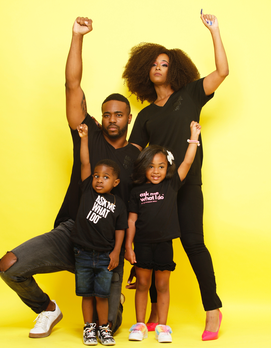 Decades of research have explored how racism affects the mental health and functioning of Black children. In an article published in the Journal of Clinical Child and Adolescent Psychology, the authors discuss that Black youth may experience discrimination and racism but still be resilient and experience positive outcomes (Jones & Neblett, 2017). The question that may come to mind is “how can someone experience racism and not have negative effects such as depression or low self-esteem”? Psychology researchers have discussed the importance of having the “race talk” or engaging in racial-ethnic socialization (RES) for many years. RES involves teaching children about their racial and ethnic heritage, as well as, preparing them to cope with discrimination (Hughes et al., 2006; Jones & Neblett, 2017). The article by Jones and Neblett (2017) demonstrates that engaging in racial and ethnic socialization improves academic performance, decreases depression symptoms, reduces problem behaviors, and provides positive racial identity attitudes among Black youth. By talking with children about racism, researchers note that Black parents prepare their children to overcome adversity by “challenging stereotypes and allowing Black youth to view their racial identity more positively” (e.g., Jones and Neblett, 2017). Recently, several events in society have provided some examples to promote racial pride among Black youth. For example, Judge Ketanji Brown Jackson is the first Black woman to be nominated to serve on the US Supreme Court (See article on NBC News). Although RES also focuses on preparing kids to deal with or experience racism, parents should be sure to teach children positive aspects of their identity such as notable figures, cultural holidays, and important family traditions. Ways to Promote Racial Socialization There are many ways to promote racial socialization. The American Psychological Association released a tool-kit to help parents engage in healthy communication about race and racism. This resource is particularly important given the continued rise of racism and discrimination in America. Here are a few tips to consider: 1. Be prepared to manage your emotions and help your child cope.
Note: A version of this post was authored by Erlanger A. Turner, Ph.D. for Psychology Today. Sources: Hughes, D., Rodriguez, J., Smith, E. P., Johnson, D. J., Stevenson, H. C., & Spicer, P. (2006). Parents' ethnic-racial socialization practices: a review of research and directions for future study. Developmental Psychology, 42(5), 747-770. Jones, S. C., & Neblett, E. W. (2017). Future directions in research on racism-related stress and racial-ethnic protective factors for Black youth. Journal of Clinical Child & Adolescent Psychology, 46(5), 754-766. Photo by My Networking Apparel on Unsplash
Racism and discrimination have occurred in America for decades. Yet it can still be difficult to talk with kids about these issues. However, we know that having healthy conversations are important.
Why The “Race Talk” Is Important Decades of research document the importance of racial and ethnic socialization [1]. For many parents of color, having the race talk is a natural progression of parenting a child in America. However, these conversations can be difficult for both the parent(s) and the child. Especially with the backdrop of events such as discrimination, racist comments displayed on social media, or witnessing direct exposure to microaggressions (subtle messages degrading people from minoritized groups). Tips on Having the Race Talk In a previous post published by the American Psychological Association’s Public Interest Directorate, I discussed several ways to engage in conversations with youth about race and racism. For example, the following tips were noted:
Written by Erlanger “Earl” Turner, Ph.D. Sources: [1] Hughes, D., Rodriguez, J., Smith, E. P., Johnson, D. J., Stevenson, H. C., & Spicer, P. (2006). Parents' ethnic-racial socialization practices: a review of research and directions for future study. Developmental Psychology, 42(5), 747-770. [2] Stevenson, H. C., Reed, J., Bodison, P., & Bishop, A. (1997). Racism stress management: Racial socialization beliefs and the experience of depression and anger in African American youth. Youth & Society, 29(2), 197-222. Dr. Earl discusses racism and mental health on ABC7 Los Angeles |
This blog is maintained by Therapy for Black Kids. Archives
June 2023
Categories
All
|
 RSS Feed
RSS Feed